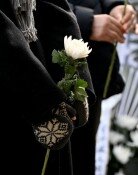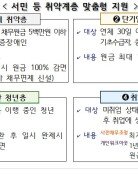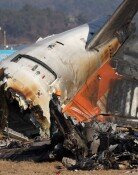[Opinion] Merchants and the Economy
[Opinion] Merchants and the Economy
Posted November. 01, 2006 03:01,
Song Merchants, who established their commercial base around the Gaesong area, have been famous for a long time. Although there is a speculation that Song Merchants started their business after the collapse of Goryeo Dynasty posed a barrier to their political career, the history of Song Merchants, in fact, goes back to remote antiquity, the period of Three Kingdoms around 6-7th century. Having acquired their wealth and knowledge through trade with China, Song Merchants employed the double entry system of bookkeeping called Sagaesongdo method even two centuries earlier than the West. Double-entry bookkeeping has also been an imperative motive in Oh Se-yeongs novel The Gaesong Merchant of Venice.
In the Joseon Dynasty, agriculture attracted serious consideration and was regarded as the fundamental work of the universe, while commerce was regarded as unworthy occupation. However, the blood of great merchants has been constantly sent down though generations. Aside from Song Merchants, there are other famous merchants like Yoo Merchants of Pyongyang, Nae Merchants of Dongrae and Man Merchants of Uiju, where Yim Sang-ok, who inspired Choi Yin-hos novel Sangdo (the mandate of Commerce).
Han Merchants, which refers to Korean entrepreneurs and businessman, is the one named after Hua Merchants (overseas Chinese businesspeople). The number of overseas Koreans has now reached 6.7 million in over 175 countries, and this figure represents the second largest overseas population in the world in terms of proportion to domestic population. If the information-collecting capability and economic networks of these Koreans are fully leveraged, they could concentrate enormous capacity, as good as overseas Chinese.
Capital gathered by overseas Chinese was the main driving force behind modern Chinas economic reform. Although Deng Xiaoping advocated the reformation and open international economy policy to rebuild the country ravaged by Cultural Revolution, there were no foreign investors who came to China. It was right at that time that Hua merchants, overseas Chinese, sent their money back to the home country and started investing in China. Hua Merchants account for 80 percent of the total sum of foreign directed investments. Responding to this, Deng promoted an international meeting of Hua Merchants with Lee Kuan Yew, the prime minister of Singapore.
The fifth international meeting of Han Merchants was held in Busan yesterday, which attracted some 1,500 overseas Koreans from 170 countries. Among them is a person who left his homeland with some $1,000 and made a great success in founding a good company. It would be hard to express the discriminations and hardships they have suffered abroad. In this era of world economy, Korea should find a way to create a win-win situation for both Korea and Han Merchants by employing the network and capitals of Han Merchants.
Chung Sung-hee, Editorial Writer, shchung@donga.com






